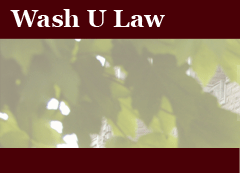Article Title
Differential Assessment and the Preservation of Open Space
Publication Title
Urban Law Annual
Abstract
In order to set the stage for the analysis which follows, it is necessary to review the basic contextual framework in which differential assessment operates. Farmers are producers of two entirely different classes of goods for two different markets: agricultural commodities and development sites. The common factor joining these two markets is the farmer's land. When used for the production of agricultural commodities, land has a value which is related to its capitalized economic rent as a factor of production. Its economic rent is determined by such factors as soil quality, topography, distance from the market, access to transportation facilities, level of management including drainage, crop rotation and soil conservation practices, general conditions in local, regional, national and international commodity markets, natural conditions such as drought, and so on. The rate at which economic rent is capitalized is a function of property taxes, capitalization rates of competing investment, and investors' expectations concerning appreciation in land values.
Recommended Citation
John C. Keene,
Differential Assessment and the Preservation of Open Space,
14 Urb. L. Ann. 11
(1977)
Available at: https://openscholarship.wustl.edu/law_urbanlaw/vol14/iss1/3
